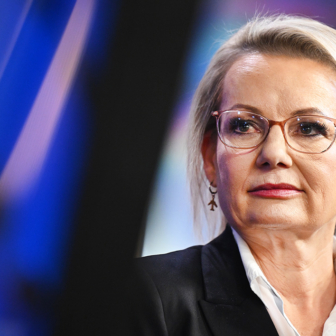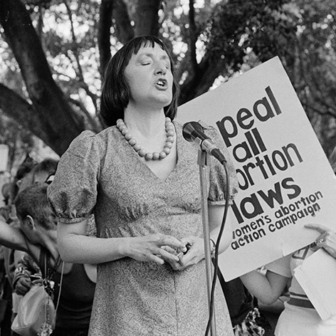Many of the stories gathered up in #MeToo’s momentum have been stomach-turning, but Reah Bravo’s recent account in the New York Review of Books is particularly fetid. The stench kicks in right there in her opening paragraph, where she describes being filled with “the oddest sense of happiness” when, as an intern, she was given the job of cleaning high-profile TV interviewer Charlie Rose’s toilet:
It was brimming with faeces and had left the upstairs smelling like a factory farm. My yellow dish gloves were flimsy and it was impossible to move the plunger without excrement slopping from the bowl.
That’s visceral and disgusting enough, but it’s the last line of the paragraph — as you realise the reason for Bravo’s strange joy — that really punches you in the gut: “I confidently reassured myself, ‘No man would ask this of a woman with whom he wanted to have sex.’”
Turns out she was wrong.
Bravo was one of the first women to go on the record in the Washington Post about Rose’s actions, and her latest round of pungent recollections was prompted by a follow-up investigation that included allegations from a further twenty-seven women. Twenty-seven. Ostensibly her piece was a thankyou note to the two journalists who broke the story and then spent six months following it up to demonstrate an entrenched, systematic failure on the part of the networks who employed Rose. After all, given that the first allegation dates back to 1976, and the last was in 2017, some victims of abuse had not been born at the time of the original offence. Plenty of time for Rose’s employers to crack down.
And yet, as Bravo points out, they didn’t, until journalists Amy Brittain and Irin Carmon came calling:
After an illustrious-seeming, decades-long career moving among the most influential figures of our time, Rose was brought down by the tenacious reporting of two young women, Amy Brittain and Irin Carmon. Armed with little more than cold calls, they cultivated among those to whom they spoke a level of comfort and confidence that would have made Charlie Rose in his heyday envious. They exposed his open secret and everything the open secrecy had enabled.
Irin Carmon joined Jenna Wortham, a New York Times journalist who also co-hosts the Still Processing podcast, and NOW Australia founder Tracey Spicer, who is herself spearheading a number of #MeToo investigations, on a Sydney Writers’ Festival panel that I chaired earlier this month. At the end of the evening, in the midst of a rather heated Q&A during which a large man tried to co-opt every microphone in the hall in order to have his say (he was escorted, yelling, from Sydney Town Hall), a woman stood to say her thankyous.
“I came to Tracey with my story last year,” she said, “and she followed up with me and said, look, you’re not the only victim of this man, but we just can’t get the story up… As journalists you can only do what you can with the resources that you have [so] this comes back to the media organisations… I speak for myself and I speak for the other women who won’t see justice because of what’s acceptable and what’s not and that’s decided in an office.”
For the people in those offices who are weighing up whether to publish, part of the hesitancy comes from the stark difference between the legal landscape in which Carmon published her story and the one Spicer and her Fairfax and ABC collaborators face in Australia. The nature of defamation law in this country is stopping the #MeToo movement in its tracks.
Here, the media’s primary line of defence is truth — which means that the burden on publishers, once it has been established that a story is defamatory (which can be pretty easily argued in relation to most accusations), is to prove the truth of what they published. In the United States, defamation plaintiffs have to prove that what has been published about them is false. For the kind of allegations that #MeToo has brought forward, that burden of truth in Australia is diabolical.
That’s not to argue that journalists should be able to get away with publishing serious allegations without backing their stories with rigorous research. The standards at the Washington Post are by no means lax, as Carmon pointed out on the night. “The bar to get something to publication is really high,” she said. “The women who accused Harvey Weinstein — one of them had a recording and people still didn’t believe for years. So many people don’t have that kind of evidence, and it is potentially retraumatising for people to go through that.” And, of course, the most marginalised people are the least likely to have paperwork or diaries: “That is something that is very biased towards someone who is very comfortable with the system and not someone who’s been put outside of it.”
But combine these standard, and necessary, journalistic requirements with Australia’s defamation laws, the most prohibitive in the English-speaking world, and then try to get a story up. Publishers have to deal with the law as it exists, and the most fundamental difference comes down to the fact that the American people have an enshrined constitutional right to free speech and we haven’t.
“Because I’ve got such a large file now… I’ve got beyond a dozen accusations against many of the people who are alleged offenders,” said Spicer that night. “Even with that you have to almost act like you’re part of the police force. ‘Is there any clothing with DNA on it?’ ‘Are there any diaries, did you tell anyone at the time, a family member or a friend?’ That is the extent that journalists have to go to, particularly in a country like this, to build enough evidence for a case.”
Watching high-profile defendants like Craig McLachlan and Geoffrey Rush retaliate with legal action against their accusers has also had an effect. As investigative journalist Kate McClymont said at the same festival, “The current lawsuits involving the #MeToo movement have had a chilling effect on more women coming forward.” As a journalist, you have to be prepared to build a watertight criminal case. So, too, do the people coming forward in this country with their #MeToo stories. They are much more likely to have to defend themselves in court than their US counterparts are, and for many people that’s understandably too much to ask.
But according to Spicer, there’s another impediment to women telling their stories here in Australia. “I’ve been very sad to see some of the mainstream media organisations in this country… actively say to me we are pulling back from these stories for a couple of reasons: not only is it costly, not only is it difficult because of defamation, but it’s getting a little bit too close to our executives.”
That’s got nothing to do with defamation law, beyond execs using it as a cover, and everything to do with a continued, and systematic, abuse of power and privilege, the likes of which the Washington Post and the US media in general continue to expose because they have the relative freedom to do so. Without a change in our defamation laws, the victims of abuse in Australia may miss that shot at revealing the rot at the structural core of our institutions and changing it for good. ●




